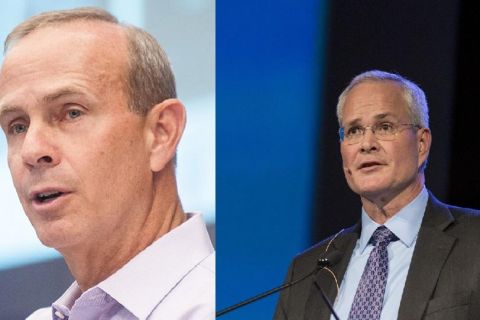Australian gas producer Strike Energy said on Jan. 6 its takeover offer for Perth-based Warrego Energy is at a premium to Hancock Energy's sweetened bid, as the tussle for the oil and gas explorer intensifies.
Strike's all-scrip bid of 37.5 Australian cents per share, based on its closing share price on Jan. 5, values Warrego at about $459 million AUD ($310.24 million USD). The offer also represents a 4.2% premium to Hancock's sweetened 36 Australian cents-per-share bid, which values Warrego at $440 million AUD.
Warrego, which holds the West Erregulla gas fields in Western Australia, has been at the center of a number of buyout bids in the recent past, attracting offers from gas players such as Beach Energy in the past.
"West Erregulla gas fields deliver some of the cheapest gas in Australia, which is used for power generation and processing of minerals and the bidding war is likely to play out longer as some very determined bidding parties are involved in the play," said Tony Sycamore, market analyst at IG Australia.
Hancock, owned by Australian business magnate Gina Rinehart, said in a bidder's statement on Jan. 5 that its offer extended to Warrego shareholders, who had earlier accepted its lower bid of 28 Australian cents apiece, but were conditional on the energy company achieving a 40% shareholder acceptance.
Hancock advised Warrego shareholders, who supported rival bidder Strike's offer, that they may not be eligible for capital gains tax rollover relief, given that Hancock already owns more than 25% of Warrego.
Strike holds a 19.9% stake in the Perth-based energy company.
Strike warned Warrego shareholders that accepting Hancock's bid "places a terminal value" on their shares, and that there is a potential for shareholders to benefit from further share price upside if they accept its bid.
Strike shares are trading 2.7% higher at 38.5 Australian cents on Jan. 6, valuing its one-for-one scrip bid higher than Hancock's cash offer. Warrego shares have more than doubled in value since the takeover tussle began last November.
"It just depends on whether shareholders think there's greater value in taking that money and running or sitting there and waiting patiently for it to appreciate in the future," Sycamore said.
Warrego and Hancock did not immediately respond to a Reuters request for comment.
Recommended Reading
CEO: Magnolia Hunting Giddings Bolt-ons that ‘Pack a Punch’ in ‘24
2024-02-16 - Magnolia Oil & Gas plans to boost production volumes in the single digits this year, with the majority of the growth coming from the Giddings Field.
Canadian Natural Resources Boosting Production in Oil Sands
2024-03-04 - Canadian Natural Resources will increase its quarterly dividend following record production volumes in the quarter.
Exxon, Chevron Tapping Permian for Output Growth in ‘24
2024-02-02 - Exxon Mobil and Chevron plan to tap West Texas and New Mexico for oil and gas production growth in 2024, the U.S. majors reported in their latest earnings.
First Solar’s 14 GW of Operational Capacity to Support 30,000 Jobs by 2026
2024-02-26 - First Solar commissioned a study to analyze the economic impact of its vertically integrated solar manufacturing value chain.
Chesapeake Slashing Drilling Activity, Output Amid Low NatGas Prices
2024-02-20 - With natural gas markets still oversupplied and commodity prices low, gas producer Chesapeake Energy plans to start cutting rigs and frac crews in March.





